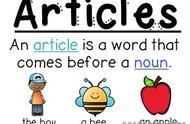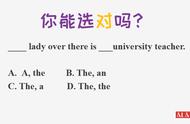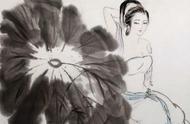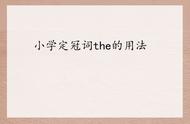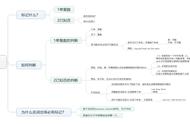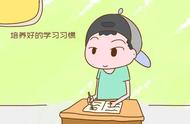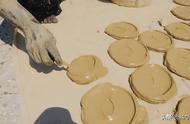每日更新。恳请关注我。我也会尽快关注您。
Updated daily. Please follow me so that I can follow you.

Question问:
How many ways are there to pronounce the word "the" in the English language, and what are they?
在英语中,单词“the”有多少种发音方式?它们是什么?
Answer 答:
English has two different pronunciations of the word "the" (but they mean the same thing).
英语中单词“the”有两种不同的发音(但它们的意思是一样的)。
The Two Pronunciations:
两个发音:
One pronunciation is /ðə/ (it has the same vowel you hear at the very end of "ballerina").
其中一个发音是/ðə/(它与你在"ballerina" (芭蕾舞者)结尾听到的元音相同)。
The other pronunciation is /ði/ (it has the same vowel you hear in "it").
另一个发音是/ði/(它和你在“it”中听到的元音相同)。
When to Use Each One:
什么时候使用它们:
The pronunciation of the word "the" depends on the first sound of the word that comes immediately after it.
单词“The”的发音取决于紧接在它后面的单词的第一个音。
When the word after "the" begins with a consonant sound, people usually use /ðə/.
当“the”后面的单词以辅音开头时,人们通常使用/ðə/。
When the word after "the" begins with a vowel sound, people usually use /ði/.
当“the”后面的单词以元音开头时,人们通常使用/ði/。
Below are examples of how each pronunciation is typically used.
下面是每个发音的典型用法。
In each of the examples below, /ðə/ is usually used because the word after "the" begins with a consonant sound:
在下面的每一个例子中,通常使用/ðə/,因为“the”后面的单词以辅音开头:
- We liked the movie very much.
- 我们非常喜欢这部电影。
- The parents enjoyed the children's school play.
- 家长们很喜欢孩子们在学校的表演。
- Each of the seven flowering trees had bloomed.
- 七棵开花的树都开花了。
- They were the first people to arrive at the convention.
- 他们是第一批到达大会的人。
In each of the examples below, /ði/ is usually used because the word after "the" begins with a vowel sound:
在下面的每一个例子中,通常使用/ði/,因为“the”后面的单词以元音开头:
- He reached the end of the trail and had to turn around.
- 他走到小路的尽头,不得不掉头。
- The indecisiveness of the employees made work difficult.
- 员工的优柔寡断使工作变得困难。
- We listened to the new song for the eighth time before switching to something else.
- 我们听了第八遍这首新歌,然后换了别的歌。
- He painted the apple in an abstract style.
- 他以一种抽象的风格画了这个苹果。


